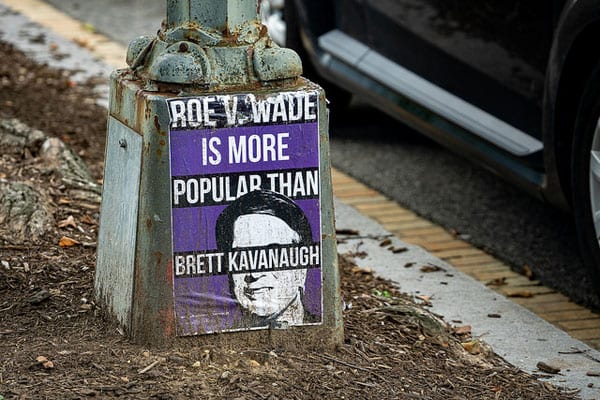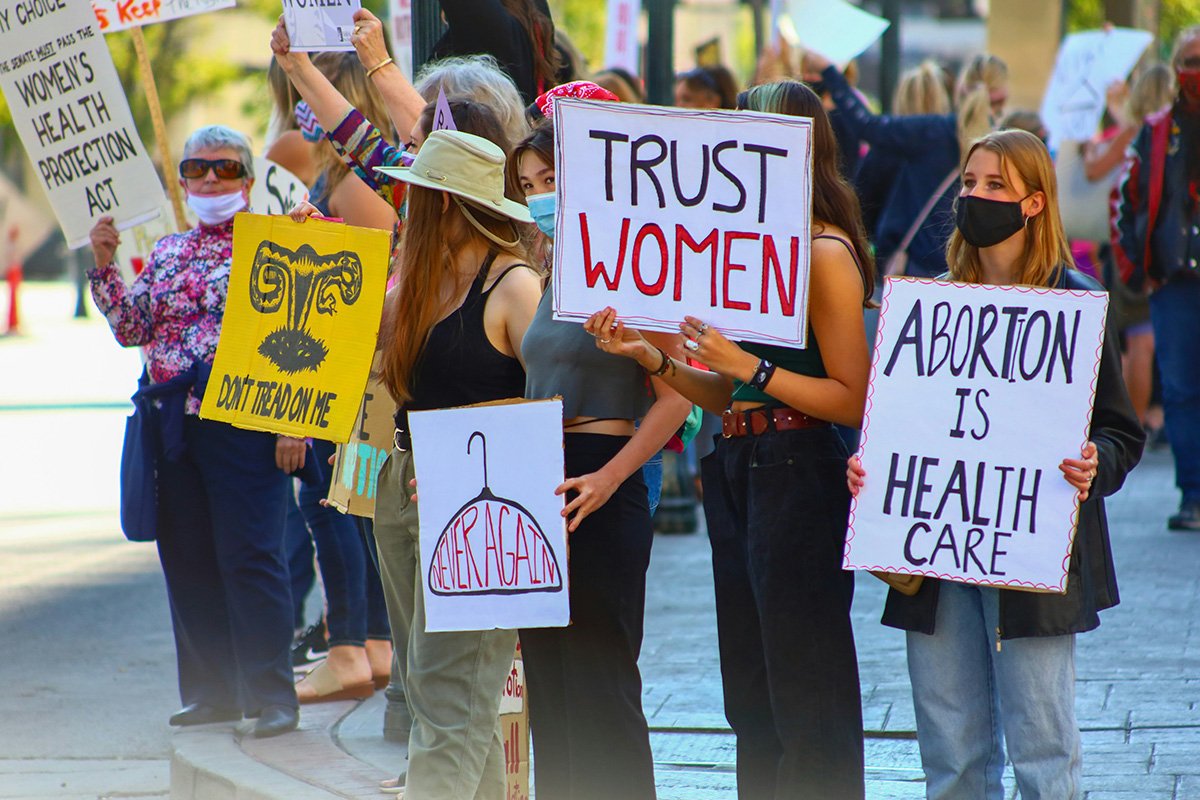
January 2, 2019; National Public Radio, “All Things Considered” and New York Times
The race is on: As has been anticipated, advocates and governments in states with a vested interest in reproductive rights—pro or con—are competing with one another to see which one will land a case before the now right-leaning Supreme Court and carry the banner of overturning Roe v. Wade.
As Elisabeth Smith, chief counsel for state policy and advocacy at the Center for Reproductive Rights, said to NPR’s Sarah McCammon, “We think this will be a watershed moment in terms of the number [of bills] that are filed, and then potentially the number that will actually be enacted in various states.”
As NPQ has noted before, bills and measures seeking to limit access to abortion have proliferated in recent years. As an editorial by the Los Angeles Times editorial Board states, “Just since 2010, reproductive rights advocates estimate that a staggering 400 anti-abortion bills have been passed by state legislatures. Some were so blatantly unconstitutional that federal judges overturned them indefinitely or permanently. But that hasn’t stopped states from appealing the rulings or introducing other such bills.”
But with Kavanaugh’s ascension, the balance in the court has changed.
On the tension in the moment, advocates on both sides agree. “States want their bill to be the one to go to the Supreme Court,” says Sue Liebel, state director for the anti-abortion-rights group Susan B. Anthony List. “I think they’re hopeful; they’re energized and rarin’ to go.”
Not all states are in this melee willingly; some are now confronting their own complacency with state laws that have not kept pace with the need for updates and changes as reproductive health and abortion rights have moved forward. For example, New York state, often seen as the leader in reproductive rights from its beginnings, is now finding itself in a conundrum of its own making.
When the state’s law was enacted in 1970, it was the most progressive in the nation, and tens of thousands of women traveled to New York to safely obtain the procedure. But once Roe was decided, just a few years later, the statute immediately became outdated.
The 1970 law was passed by a Republican legislature and signed into law by Gov. Nelson Rockefeller, also a Republican.
Sign up for our free newsletters
Subscribe to NPQ's newsletters to have our top stories delivered directly to your inbox.
By signing up, you agree to our privacy policy and terms of use, and to receive messages from NPQ and our partners.
But as the Republican Party veered sharply rightward in the decades that followed, support plummeted among Republican state legislators for abortion. The Catholic Church and lobbyists on its behalf advocated against efforts to update the law. Democrats didn’t press the issue.
We now have a law in New York that limits abortions to women who are 24 weeks pregnant or less, or whose own lives are in danger. This leaves out the many women who find out they are carrying a nonviable fetus after 24 weeks and must either carry that fetus to term, or take on the cost, both emotional and tangible, of traveling to another state for a “late term abortion.”
The tenor of the New York state legislature was not amenable to changing the law, but times have changed. And while other state legislatures are rushing to pass the most restrictive abortion laws, New York is expected to bring its Reproductive Health Act to a vote early in January 2019 and again be a leading state for abortion rights.
“This is New York. This is America. There’s Roe v. Wade. But nobody reads the fine print,” said State Senator Liz Krueger, a lead sponsor of New York’s proposed Reproductive Health Act.
In addition to bringing New York’s abortion law up to today’s federal standard, the Reproductive Health Act would permit nurse practitioners, physicians assistants and midwives to provide nonsurgical abortion care, reducing wait times. It would also remove the abortion law from the state’s penal code and put it in the health code, where it belongs. Advocates say the legislation would re-establish the state as a national leader in abortion access and a place where women from more restrictive states could travel to get the care they need.
Gov. Andrew Cuomo of New York has vowed to approve the legislation within the first 30 days of the new session, which begins in January.
Meanwhile, states like Ohio, Mississippi, and Iowa are passing abortion legislation that could land on the steps of the Supreme Court and push the newest Justices to show their true colors on this issue. Iowa has passed a fetal heartbeat bill, and Ohio activists have passed a law banning a common second-trimester abortion procedure called dilation and extraction. In Mississippi, abortions are banned after 15 weeks.
Even if Roe v. Wade is not totally overturned, they hope for support for further restrictions on abortion in the light of states like New York opening doors to greater access. As McCammon explains, “If Roe were weakened or overturned, more power for regulating abortion would fall to the states. Several anti-abortion-rights groups are pushing to increase the number of states banning abortion after 20 weeks or earlier.”
This month sees the 46th anniversary of Roe v. Wade, and as the L.A. Times editorial board notes, though is settled law, “states continue to fight to undermine it, to restrict access and to return the country to the days of illegal abortions. As 2019 begins, these unnecessary battles will continue in courthouses and statehouses around the country.” The stakes today are especially high. —Carole Levine












